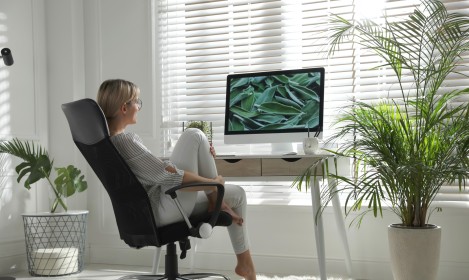- ACRYSTEX MS RESIN
- AGON®
- AMILAN™ PA
- BIFFA r-HDPE
- BIFFA r-PP COMPOUND
- CELANEX® PBT
- CELANYL® PA
- CLEARFLEX LLDPE
- CRASTIN
- DIAKON PMMA
- DISTRUPOL-PRECW
- DRYFLEX® CIRCULAR
- DRYFLEX® GREEN
- DRYFLEX® TPE
- DUTRAL®
- ECOMID® PA
- EGYEUROPTENE
- ELASTOLLAN TPU
- ELTEX MED
- ELTEX P POLYPROPYLENE
- ELVAKON PMMA
- ENTHOVEN RECYCLED PPC
- ERACLENE HDPE
- EUROPRENE®
- EVICOM PVC COMPOUNDS
- FLEXIRENE LLDPE
- FRIANYL® PA
- GREENFLEX EVA
- HY-VIN PVC COMPOUNDS
- HYTREL
- INEOS EBA
- INEOS EMAA
- INEOS LDPE
- INEOS LLDPE
- INEOS PP
- INEOS mLLDPE
- IPETHENE LDPE
- KEPITAL™ POM
- KIBILAC ASA
- KIBISAN SAN
- KIBITON Q-RESIN
- KIBITON TPE
- LG ABS
- LG ASA
- LG LUPOX PC/PBT
- LG LUPOY PC
- LG LUPOY PC/ABS
- LG LUPOY PC/ASA
- LG LUSEP PPS
- LG SAN
- MEDALIST TPE
- MEDIPRENE TPE
- MINLON PA
- MONPRENE TPE
- PEARLENE
- PHARMALENE PE & EVA
- PINNACLE HPP
- PINNACLE ICPP
- PINNACLE RCPP
- POLYCHIM PP
- POLYLAC ABS
- POLYREX PS
- PURGEX CLEANING COMPOUND
- PVOH (Polyvinyl Alcohol)
- RECYCL-IN
- RIBLENE LDPE
- RIGIDEX HDPE
- RIGIDEX MDPE
- RYNITE PET
- SARLINK TPV AND TPE
- THERMOFIL REINFORCED PP COMPOUNDS
- TORAYCON PBT
- TORELINA PPS
- TOYOLAC ABS
- TOYOLAC MABS
- TRIFILON BIOLITE
- TRIFILON REVO
- TRIFILON SWITCH
- WELLS PLASTIC ANTISTATICS
- WELLS PLASTICS ANTIBLOCKS
- WELLS PLASTICS ANTIMICROBIALS
- WELLS PLASTICS ANTIOXIDANTS
- WELLS PLASTICS BLOWING AGENTS
- WELLS PLASTICS FLAME RETARDANT MASTERBATCHES
- WELLS PLASTICS FRAGRANCES
- WELLS PLASTICS OXO BIODEGRADABLES
- WELLS PLASTICS PROCESSING AIDS
- WELLS PLASTICS PURGE AND CLEANING COMPOUNDS
- WELLS PLASTICS SLIP AGENTS
- WELLS PLASTICS UV STABILISERS
- WONDERLITE PC
- WONDERLOY PC/ABS
- ZYTEL PLUS
- ZYTEL HTN
- ZYTEL LCPA
- ZYTEL PA
- ZYTEL RS
Sustainability with Hytrel® ECO B
Features of Hytrel®
Hytrel® ECO B – a new standard for functional TPC-ET sustainability
The revolutionary Hytrel® ECO B portfolio uses a biomass balance approach certified by the ISCC+ (International Sustainability & Carbon Certification) standard. Hytrel® ECO B uses up to 72% second-generation biomass (bio residue/waste) that does not compete with food/feed supplies and does not induce land use change.
Full circle sustainability
Sustainability needs to be considered throughout every stage of the product manufacturing process e.g. carbon emissions, water usage, waste products etc. This is better known as the Life Cycle Assessment (LCA). LCA covers the entire product journey: from the initial point of creation (cradle) to the point the product is finally disposed of (grave). The total picture depicts the true environmental impact of a product.
Celanese has looked at every angle and detail of Hytrel® ECO B in order to conduct its sustainability assessment using a cradle-to-gate LCA in accordance with ISO 14040/ 14044 methodology.
The uncompromising properties of Hytrel® ECO B
Hytrel® ECO B is identical to standard Hytrel® when it comes to properties. This includes excellent elasticity and low temperature flexibility, excellent flex fatigue and cut growth life, good chemical and oil resistance and high tear strength, toughness, resilience and impact resistance.
Designers and manufacturers who want to reduce their environmental impact, but still need high-performance materials, can get the best of both worlds with Hytrel® ECO B.
For ease of transition to this new sustainable material portfolio, this also means that no transition evaluation or retooling is needed after Hytrel® standard grades have been specified.

Hytrel® ECO B and service temperatures
Like all Hytrel® grades, this new range of sustainable TPC-ET material
solutions offers the same durability and strength, coupled with
incredible flexibility. The chart to the left shows that these materials
have a wide range of service temperatures: they
remain flexible even in extreme cold, and maintain properties
even in extreme heat. Exhibiting great chemical resistance, they can be
overmolded onto many rigid thermoplastics, and exceptional
melt stability enables processors to recycle scrap efficiently.
Unrivalled properties; unmatched sustainability
Hytrel® ECO B boasts an incredible property profile, serving applications across the automotive, electronic, consumer, furniture and sporting good industries.
- Flexibility and resilience
- Excellent low temp flexibility and toughness
- Broad service temperature (-65°C to 150°C)
- Superior bonding performance with PC-based material
- Highly resistant to hydrocarbons and other fluids
- Excellent flex fatigue resistance
- Excellent creep resistance
- Resistant to tearing and flex cut growth
- Good noise and vibration dampening at low temperatures
- Wide processing window with thermal stability
Hytrel® ECO B grade portfolio

With Hytrel® ECO B, you can revolutionise your sustainability strategy
- Increase the amount of renewable material in your products as the base polymer of Hytrel® ECO B is produced from 100% certified bio-feedstock from waste (ISCC mass balance).
- See the value in waste – Hytrel® ECO B can be reground multiple times without losing material properties.
- Reduce your CO2 emission and fossil resource use with the sustainability profile of Hytrel® ECO B.
Explore other features of Hytrel®
© 2025 Distrupol. All rights reserved.